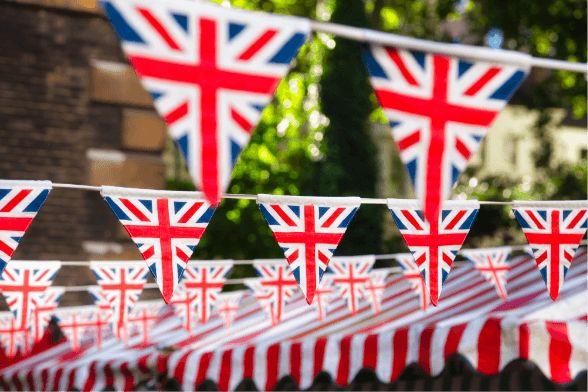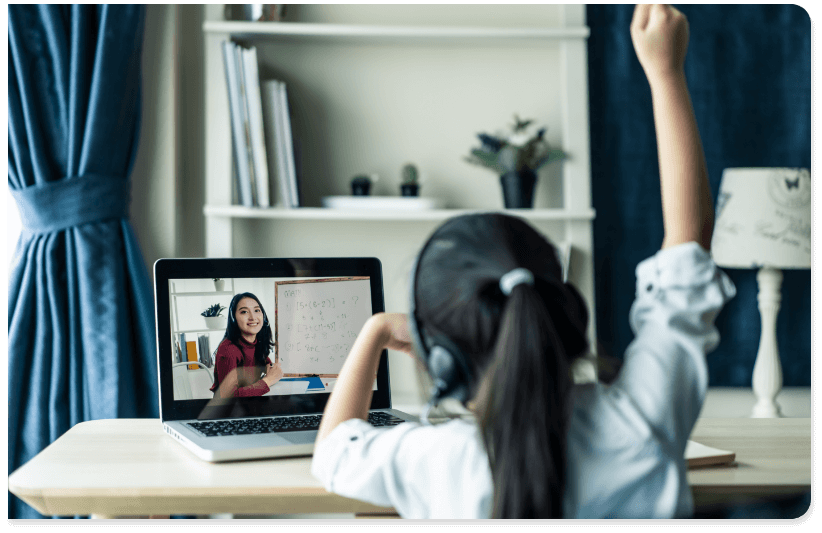
Kursi bērniem vecumā no 7 līdz 9 gadiem
Mūsu pamatkursu mērķis ir papildināt mūsu audzēkņu esošās zināšanas un mācības, nodrošinot draudzīgu telpu praksei un vairojot pārliecību.
Mēs balstāmies uz angļu valodas pamatiem, paplašinot leksisko izpratni (vārdu krājumu) un funkcionālās komunikācijas prasmes (saruna) ar aizraujošu un saistošu saturu. Uzziniet vairāk par Meridian kursu grafiku, mācību programmu un kalendāru zemāk.
Grafiks
Jauni studenti vecumā no 7 līdz 9 gadiem var sākt savas Meridian klases pirmdien vai otrdien, ja jūs pabeidzat reģistrāciju līdz plkst. 9.30 (Lielbritānija) izvēlētajā sākuma datumā. Kursa datumi ietver sabiedriskos svētkus un skolas slēgšanas dienas.
Rezervējot, jūs atradīsiet kursa datumus bērniem vecumā no 7 līdz 9 gadiem. Zemāk ir redzams parauglaika grafiks. Laika korekcijas seko Lielbritānijas GMT uz BST pārejai. Mēs jums paziņosim, ja tas ietekmē jūsu bērna klasi.
2 reizes nedēļā

3 reizes nedēļā

What your child will learn at each levels?
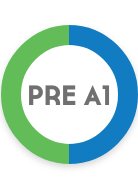
• Spēj atpazīt skaitļus, cenas, nedēļas dienas, ja tos izrunā skaidri un lēni.
• Var atpazīt pazīstamus vārdus kopā ar attēliem, piemēram, bilžu grāmatu, izmantojot pazīstamu vārdu krājumu.
• Var izveidot īsas frāzes par sevi, sniedzot pamata personisko informāciju.

• Spēj saprast un lietot pazīstamus ikdienas izteicienus un ļoti vienkāršas frāzes.
• Var iepazīstināt ar sevi un citiem, kā arī uzdot un atbildēt uz jautājumiem par personas datiem, piemēram, dzīvesvietu, cilvēkiem, kurus viņš pazīst un kas viņam ir.
• Var vienkāršā veidā sazināties, ja otrs runā lēni un skaidri un ir gatavs palīdzēt.

• Spēj saprast teikumus un bieži lietotus izteicienus, kas saistīti ar visnozīmīgākajām jomām (piemēram, ļoti elementāra informācija par personību un ģimeni, iepirkšanās, vietējā ģeogrāfija, nodarbinātība).
• Spēj sazināties vienkāršos un rutīnas uzdevumos, kuros nepieciešama vienkārša un tieša informācijas apmaiņa par pazīstamiem un ierastiem jautājumiem.
• Prot vienkāršā izteiksmē aprakstīt savas pieredzes, tuvākās vides aspektus un jautājumus jomās, kurās tas ir nepieciešams.
Pamata satura kurss 7–9 gadus veciem bērniem
 1.–4. nodaļa
1.–4. nodaļa
|
Course Title
ITE
duration
12 weeks
18–30 h |
Galvenās tēmas | Galvenā vārdnīca | Galvenā gramatika | Galvenā izruna |
|
• Hello |
• Classroom objects and |
• Say hello, introduce |
• Letters and phonics A-Z |
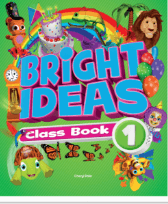 1.–4. nodaļa
1.–4. nodaļa
|
Course Title
Pre-A1.1
duration
12 weeks
18–30 h |
Galvenās tēmas | Galvenā vārdnīca | Galvenā gramatika | Galvenā izruna |
|
• What do we like about school? |
• Classroom objects and |
• ‘It’s a…’ and ‘have got/ |
• Consonant sounds /r/ |
 5.–8. nodaļa
5.–8. nodaļa
|
Course Title
Pre-A1.2duration
12 weeks18–30 h |
Galvenās tēmas | Galvenā vārdnīca | Galvenā gramatika | Galvenā izruna |
|
• What do we eat? |
• Food |
• ‘What do you…?’ and |
• Consonant sounds /tʃ/ |
 1.–4. nodaļa
1.–4. nodaļa
|
Course Title
Pre-A1.3
duration
12 weeks
18–30 h |
Galvenās tēmas | Galvenā vārdnīca | Galvenā gramatika | Galvenā izruna |
|
• Why do we like |
• Possessions and
|
• Possessive adjectives |
• Consonant sounds /w/ |
 5.–8. nodaļa
5.–8. nodaļa
|
Course Title
Pre-A1.4
duration
12 weeks
18–30 h |
Galvenās tēmas | Galvenā vārdnīca | Galvenā gramatika | Galvenā izruna |
|
• Why are animals |
• Wild animals and things |
• Present simple |
• Pronounce the /h/ sound |
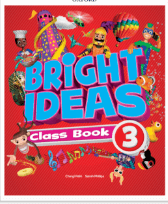 1.–4. nodaļa
1.–4. nodaļa
|
Course Title
A1.1
duration
12 weeks
18– 30 h |
Galvenās tēmas | Galvenā vārdnīca | Galvenā gramatika | Galvenā izruna |
|
• How do we make friends? |
• Activities and prepositions of movement |
• Present continuous and imperatives |
• The sound /ei/ |
 5.–8. nodaļa
5.–8. nodaļa
|
Course Title
A1.2
duration
12 weeks
18–30 h |
Galvenās tēmas | Galvenā vārdnīca | Galvenā gramatika | Galvenā izruna |
|
• How do we make friends? |
• Beach activities and |
• Questions with ‘Want to’ |
• Vowel sounds /ɔː/ (walks) |
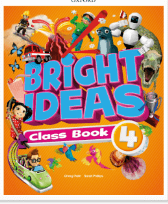 1.–4. nodaļa
1.–4. nodaļa
|
Course Title
A1.3
duration
12 weeks
18–30 h |
Galvenās tēmas | Galvenā vārdnīca | Galvenā gramatika | Galvenā izruna |
|
• What’s exciting about |
• Camping activities and |
• Past simple irregular |
• Vowel sounds /ɜː/ (third) |
 5.–8. nodaļa
5.–8. nodaļa
|
Course Title
A1.4
duration
12 weeks
18–30 h |
Galvenās tēmas | Galvenā vārdnīca | Galvenā gramatika | Galvenā izruna |
|
• What’s great about a zoo? |
• Zoo animals and Zoo keeper jobs |
• ‘going to + affirmative, |
• The /aʊ/ sound |






